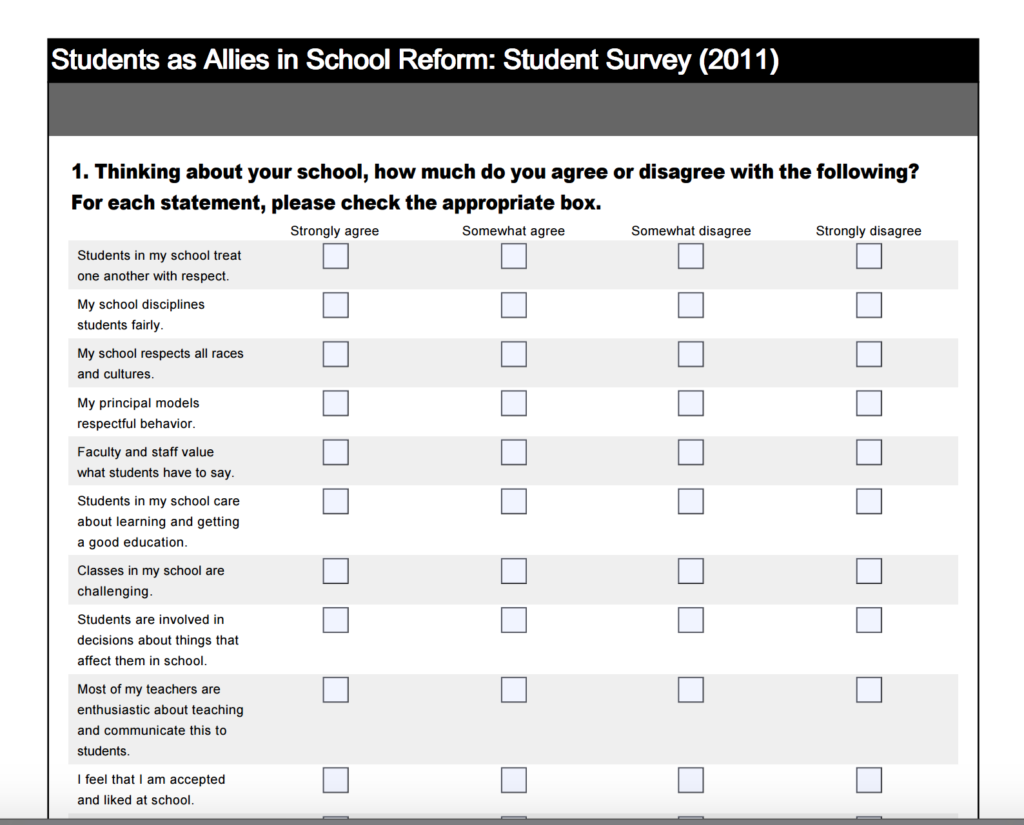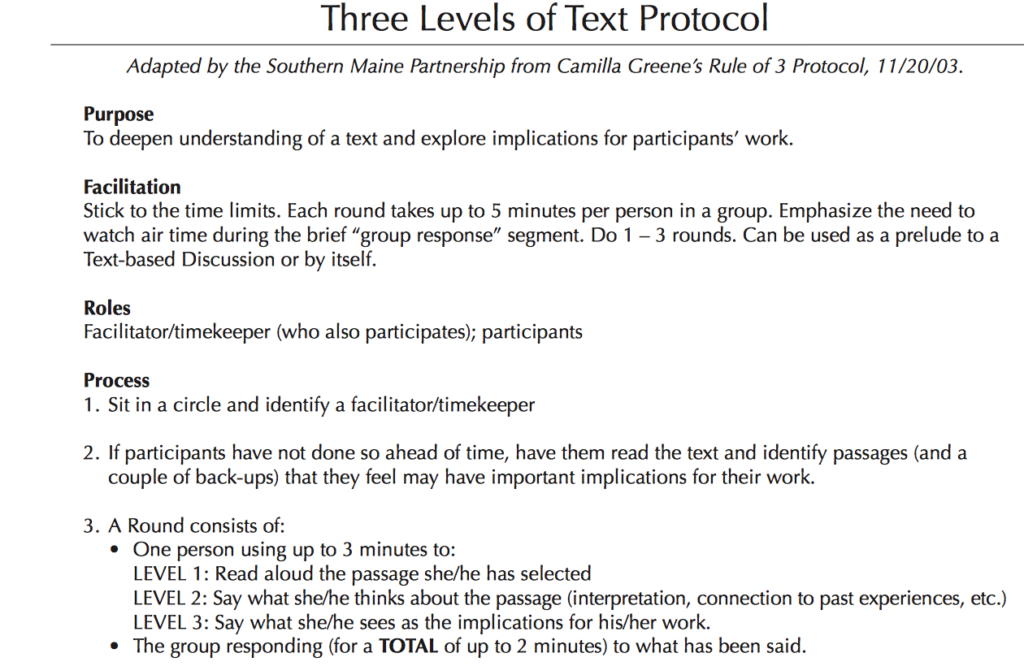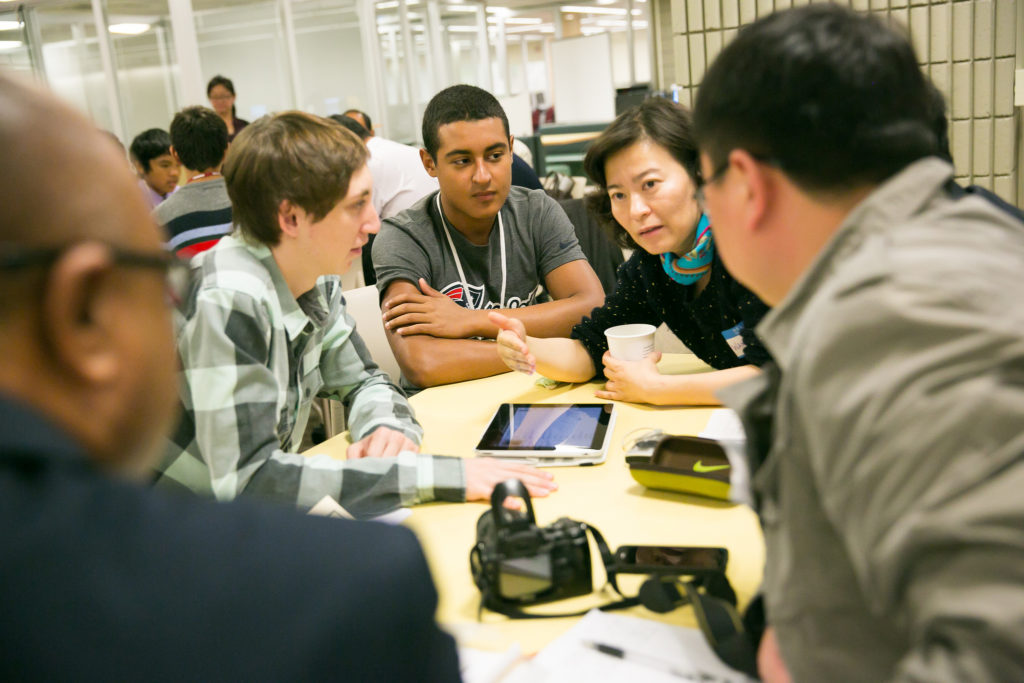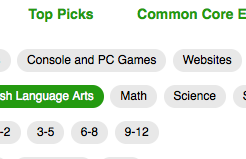The College Pathways Tools Series

The complete tool set provides all the Beating-the-Odds study tools in one publication: a framework and rubric, a student survey, a focus group protocol for students, and a focus group protocol and parent handout for families. Together, these tools enable high schools and their partners to get a multifaceted look at how well they are preparing students… Read More ›
Students as Allies in Improving Their Schools: Student and Teacher Surveys

What Kids Can Do worked with schools in 5 cities to support student involvement in reform as part of the”Students As Allies” initiative. They helped students conduct action research, participate in meaningful dialogue, and take action in partnership with adults. The Student and Teacher surveys, which were updated in 2011, can be adapted by student/adult… Read More ›
The Motivation Equation: Designing Motivation into Student-Centered Learning

The Motivation Equation: Designing Lessons that Set Kids’ Minds on Fire takes that work another big step. Using a lively multimedia platform, Cushman brings the actual work of teachers, the feedback of students, and the commentary of learning scientists to describe how—and why—high motivation and academic mastery develop in the classroom. Guided by an “actual… Read More ›
TIPS For Administrators, Teachers, and Families: How to Share Data Effectively

This document provides strategies for how school leaders & teachers can use data to inform and support student-centered approaches to learning. The tools and strategies (TIPS) included address some of the following: data sharing among teachers, sharing data with and helping families make use of data, and preparing to share data with families. Source Organization: Harvard… Read More ›
Promoting Grit, Tenacity, and Perseverance: Critical Factors for Success in the 21st Century

This paper addresses non-cognitive skills necessary to thrive int the 21st century. According to the authors, these non-cognitive skills are essential to an individual’s capacity to strive for and succeed at long-term and higher-order goals, and to persist in the face of the array of challenges and obstacles encountered throughout schooling and life. The authors… Read More ›
Education Technology Implementation Practice Guide

This guide offers a road map for district- and school-wide education technology implementation for leadership teams. It draws on research-based implementation practices and addresses core education technology implementation issues such as: Who is (or should be) included on the leadership team and involved in the process? What are your short- and long-term goals for integrating education… Read More ›
Spotlight: The Changing State of Assessments

This article addresses how formative assessments support teaching and learning as well as how testing is changing in the common-core era. Additionally, it provides arguments on key factors needed to build high-quality assessments. This is a fee-based resource. Source Organization: Education Week VISIT THE RESOURCE
Three Levels of Text Protocol

The purpose of this protocol is to support text-based discussion. This tool creates an environment that deepens understanding of a text and explore implication for students’ work. Source Organization: National School Reform Faculty VISIT THE RESOURCE
Teaching about Ferguson, Eric Garner, and Beyond
What Kids Can Do has created a list of resources that offer teachers a good place to start the conversations we need–and, in some cases, support students in taking restorative action. Visit Teaching about Ferguson, Eric Garner, and Beyond on the What Kids Can Do website.
Learning Space Toolkit

This Learning Space Toolkit includes a roadmap to guide the creation of an informal learning space along with tools and techniques for assessing needs, understanding technology, describing spaces, planning and delivering support services and assembling space, technology and services to meet needs, even as they change. North Carolina State University Libraries and its Distance Education… Read More ›
Common Sense Education: EdTech Product Reviews and Ratings

This platform was created to make it easier for educators to find the best apps, games, and websites for the classroom. Educators can use filters to sort by grade level, subject, platform, and more. Each product is reviewed and rated by a team of “experts” and crowd-sourced. Source Organization: Common Sense Education Visit the Resource
Connected Learning Research Network

This interdisciplinary research network is dedicated to understanding the opportunities and risks for learning afforded by today’s changing media ecology, as well as building new learning environments that support effective learning and educational equity. The work of the network focuses on a model of connected learning — learning that is socially connected, interest-driven, and oriented towards… Read More ›